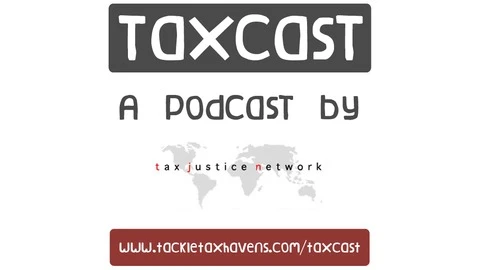Systemic racism, reparations and tax justice
Tax Justice Network, 2020
In this short podcast, Naomi Fowler, the Tax Justice Network's creative strategist, discusses how the laws made by those who profited from slavery and the empire and, the extractive business models of the major financial sector continue to impoverish some of the poorest nations. Together with leading researchers they further explore how tax justice can help address systemic racism.
"We’re recovering from many things. We’re recovering from COVID-19, we’re recovering from 400 years of oppression, and we are also recovering from a looming economic downturn. And one thing we know for sure, and we continue to learn with every economic downturn is that States have choices. They have a choice point and that’s to cut services and continue to cut their budgets that harm families that are in need – or raise revenue, raise revenue on corporations, raise revenue on those that are most profitable and the wealthy. And that’s a racialised choice, given the country’s history and ongoing biases.”
~ Cortney Sanders, Center on Budget and Policy Priorities
"There needs to be a proper negotiation on what level of reparations should be paid and to whom and who will be responsible for holding reparations in trust funds for the genuine benefit of the descendants of slaves. What must not happen is that banks and other companies use tokenistic reparation payments as an exercise in white-washing while not disclosing the full history of their involvement in slavery or in imperial plunder and pillage.”
~ John Christensen, Tax Justice Network
Comment from our editors:
In response to the Covid-19 crisis and the Black Lives Matter Movement, Naomi Fowler, from the Tax Justice Network, brings together leading researchers to discuss the interconnectedness of tax systems and institutional racism. In their latest article 'Britain’s Slave Owner Compensation Loan, reparations and tax havenry' (2020), Naomi Fowler explores how the legacy of slavery and the Empire remains at the heart of British life today. Not only wide economic inequalities were reinforced during the abolition of slavery in 1835 by compensating slave owners and not those enslaved; the Government loan used for the compensation scheme was only settled in 2015 by British taxpayers, including descendants of the formerly enslaved.
As cited in this podcast by Naomi Fowler, a quote by the writer William Faulkner captures the concept of legacy: "The past is never dead. It's not even past". Several countries such as the US and the UK are rooted in the laws made by those who profited from slavery and the Empire. The legacy of slavery is one that continues to shape the political and economic systems which incentivise wealth extraction leading to widening inequalities and, a 'chasm' between white and black communities. Nonetheless, a re-shaping of the tax system with justice at its core can help address structural racism. By exploring the historical origins and ties of the tax system in the US Cortney Sanders, Michael Leachman, David Sorenson and John Christensen stress the importance of combining tax justice with reparations.
The podcast features:
- Cortney Sanders and Michale Leachman of the Center on Budget and Policy Priorities. Their research detail vital evidence of the embodied structural racism in the federal tax system in the United States advancing racial equity with state tax policy.
- David Sorenson of the People's Tax Page whose work aims to render the intricacies of tax systems accessible to all; and,
- John Christensen, the director of the Tax Justice Network, whose work is advancing tax justice in the global economy.
Go to: Systemic racism, reparations and tax justice

